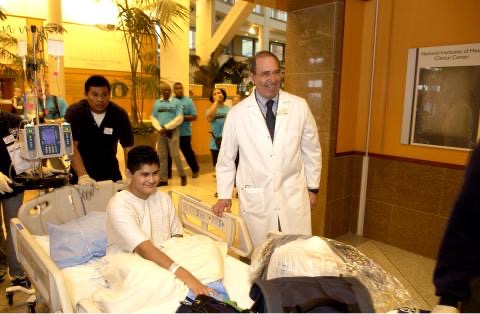The Children’s Inn Remembers Dr. John Gallin
The board of directors, trustees, and staff of The Children’s Inn at NIH mourns the loss of long-time trustee and board member of The Inn, Dr. John Gallin, who passed away on October 10.
“We are heartbroken to learn of Dr. Gallin’s passing, and extend our deepest sympathies to his wife Elaine, his children Alice and Michael, and all his loved ones,” said Jennie Lucca, the CEO of The Children’s Inn. “He was a guiding light for us in our partnership with NIH and the Clinical Center. So much of what has made us a ‘Place Like Home’ for the families coming to NIH is thanks to his collaboration and dedication to our mission and the overall mission of NIH.”
Since its inception in 1990, Dr. Gallin has supported the families staying at The Inn, a support that only increased when he became the Director of the NIH Clinical Center in 1994.
Dr. Gallin first arrived at NIH in 1971 after graduating cum laude from Amherst College and earning an M.D. from Cornell University. His pioneering work on chronic granulomatous disease (CGD), a rare genetic disorder that impairs immune cells, led to the successful use of interferon-gamma therapy to reduce infections in CGD patients, significantly advancing treatments for the condition.
Throughout his career, Dr. Gallin received numerous accolades, including election to the National Academy of Medicine and awards from leading medical organizations. Even after stepping down as Clinical Center Director in 2017, he continued his work at NIH, advancing research into immune disorders and contributing to clinical care.
John and his wife Elaine’s support of The Inn touched countless lives with their selflessness, kindness, and unwavering commitment. John’s legacy of service will carry on, not just in the hearts of those he helped, but in the inspiration he left behind for all of us.

In 2005, then-Clinical Center director Gallin (r) greets Marcos Arrieta of El Paso, Tex. (photo courtesy NIH Record)
